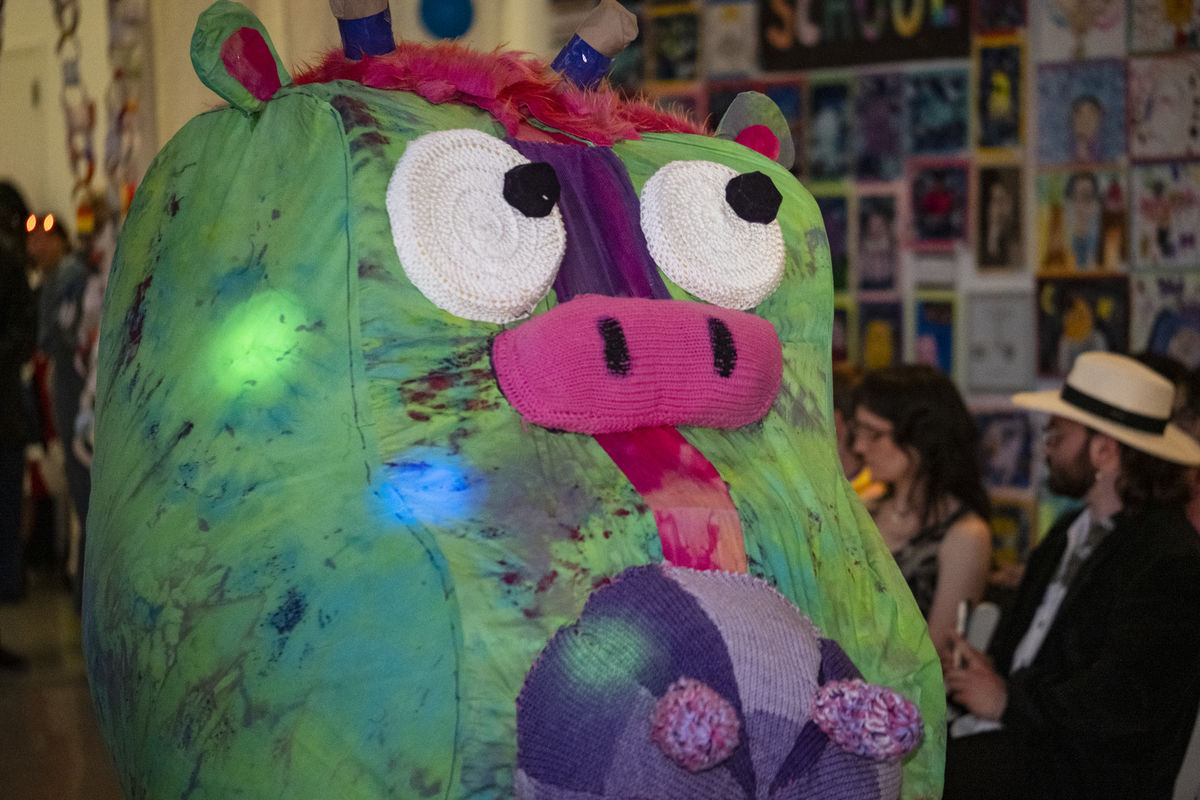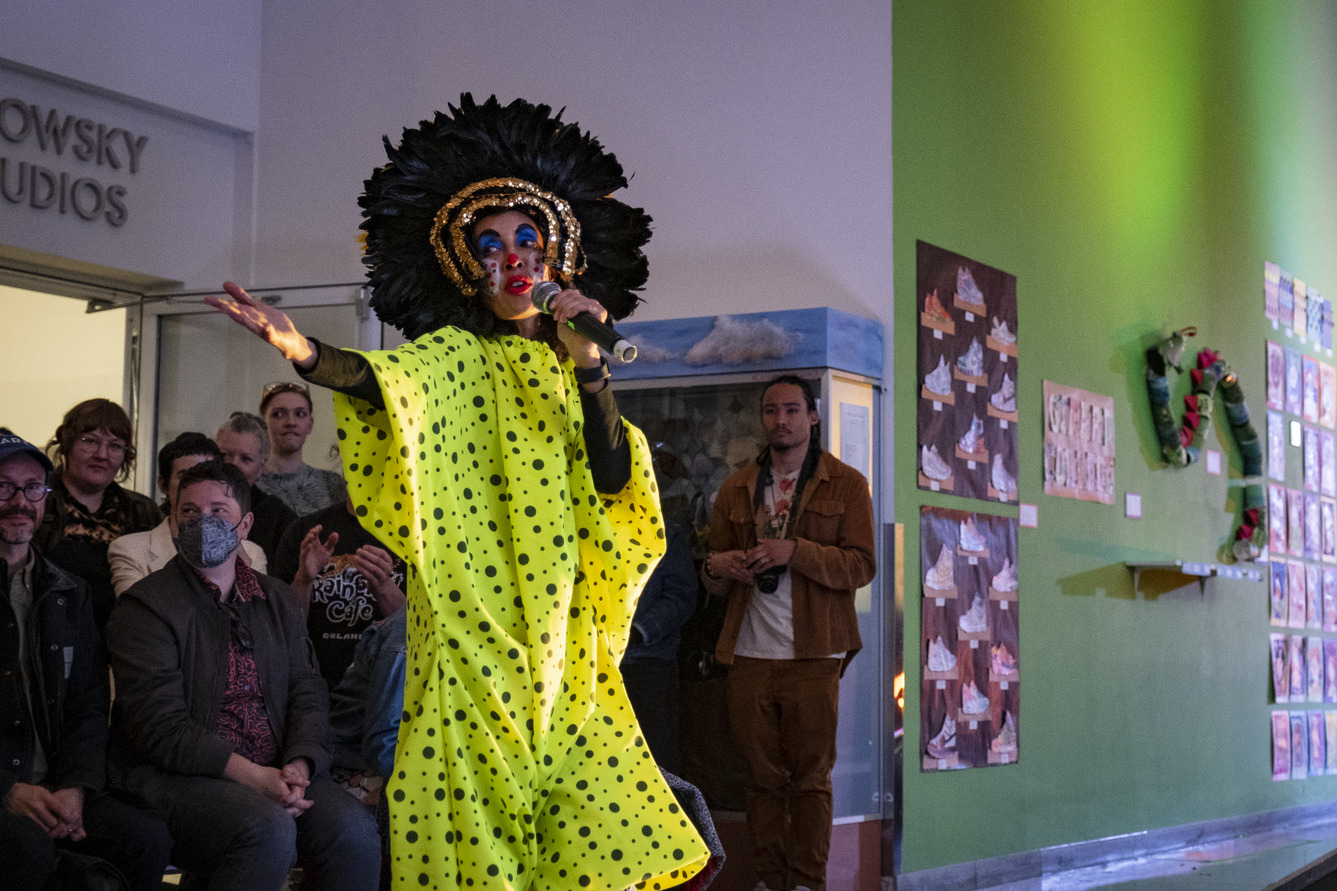It’s not every day that a person in a bathtub rolls down the hall of an academic building.
But every year on the last Thursday of the semester, such a sight is commonplace during the fibers and material studies program’s Wearable Art Show at the Tyler School of Art and Architecture.
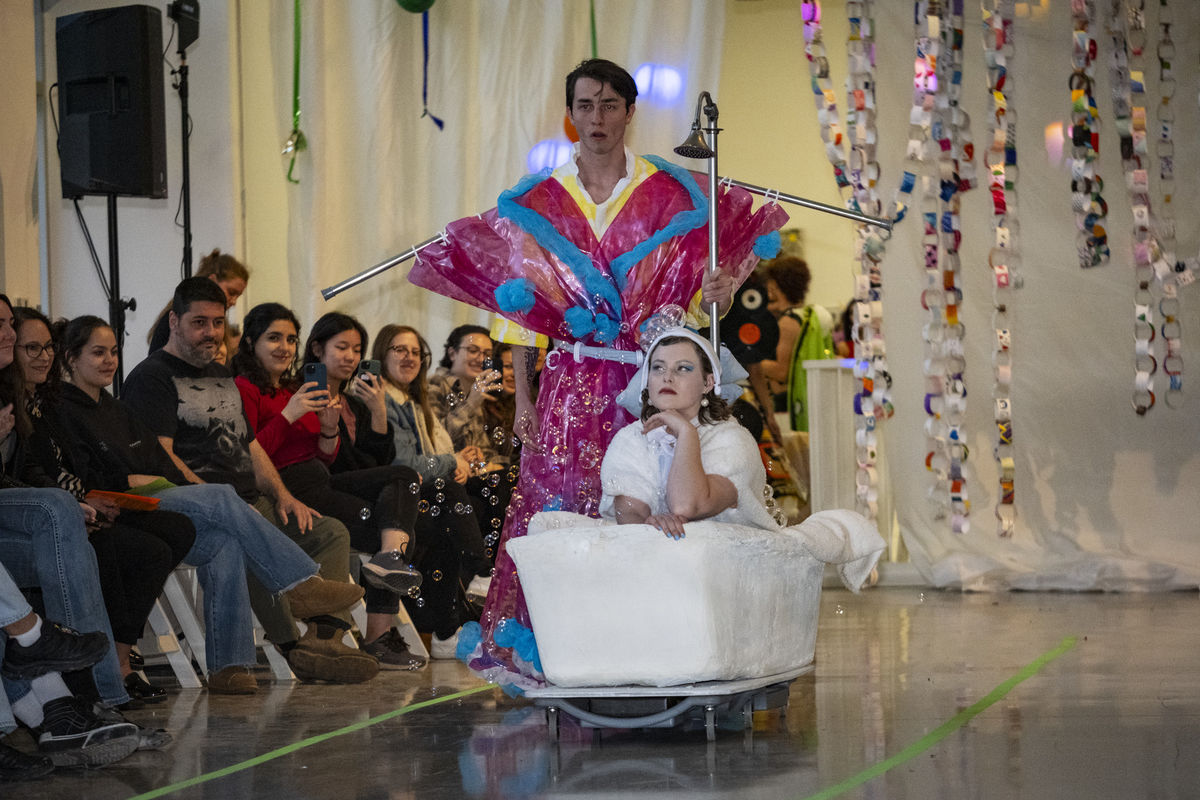
This year’s show, held on Thursday, April 25, in Tyler’s “green hallway,” provided an opportunity for fiber arts students to demonstrate their talents alongside artists from around the university.
Though a significant portion of the show focuses on the work of students taking the courses Cultivating a Collection and Figurative Futures, the Body and Technology, anyone studying at Temple can participate, regardless of year or major.
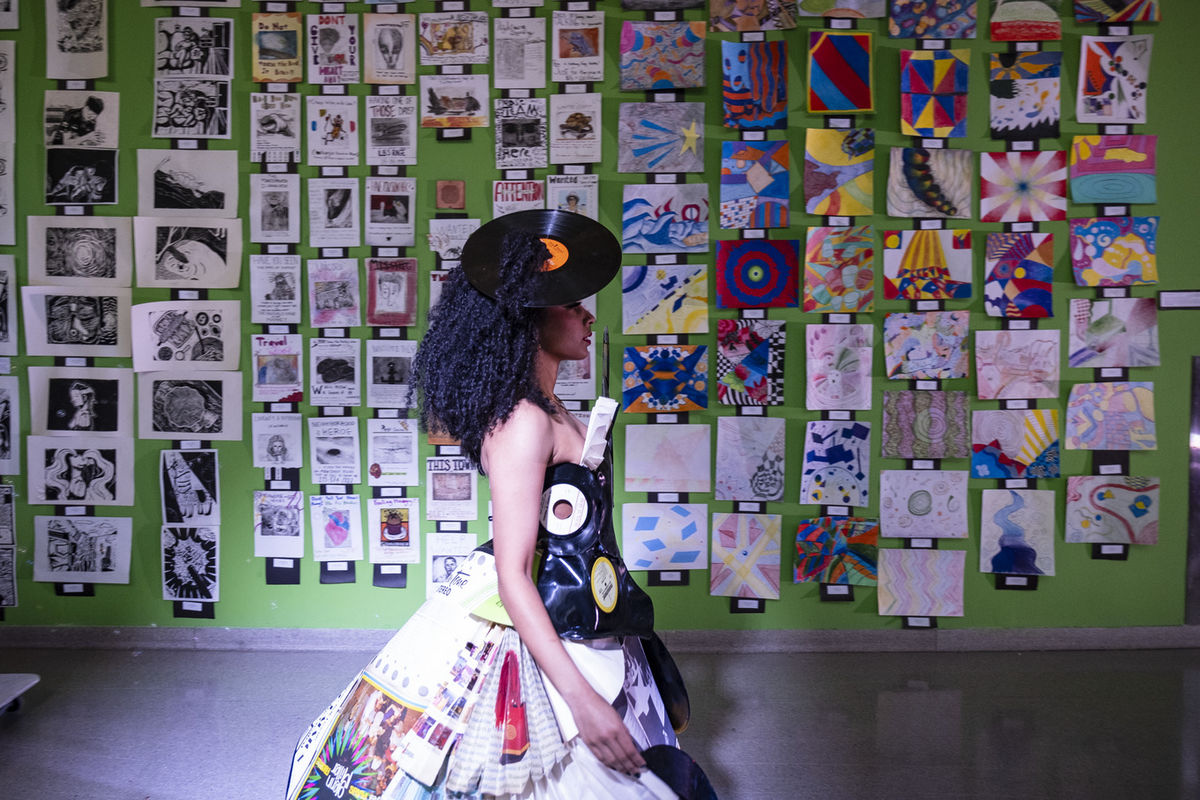
In these courses, students work in an open studio format where they give and receive feedback from each other. As a result, the Wearable Art Show demonstrates the creativity Temple students are capable of when working in conversation with one another. The pieces surpass the definition of “fashion.” Instead, they embody the concept that all sculptural pieces that can be worn on the body can be classified as “wearable art,” from jewelry to garments and even household objects.
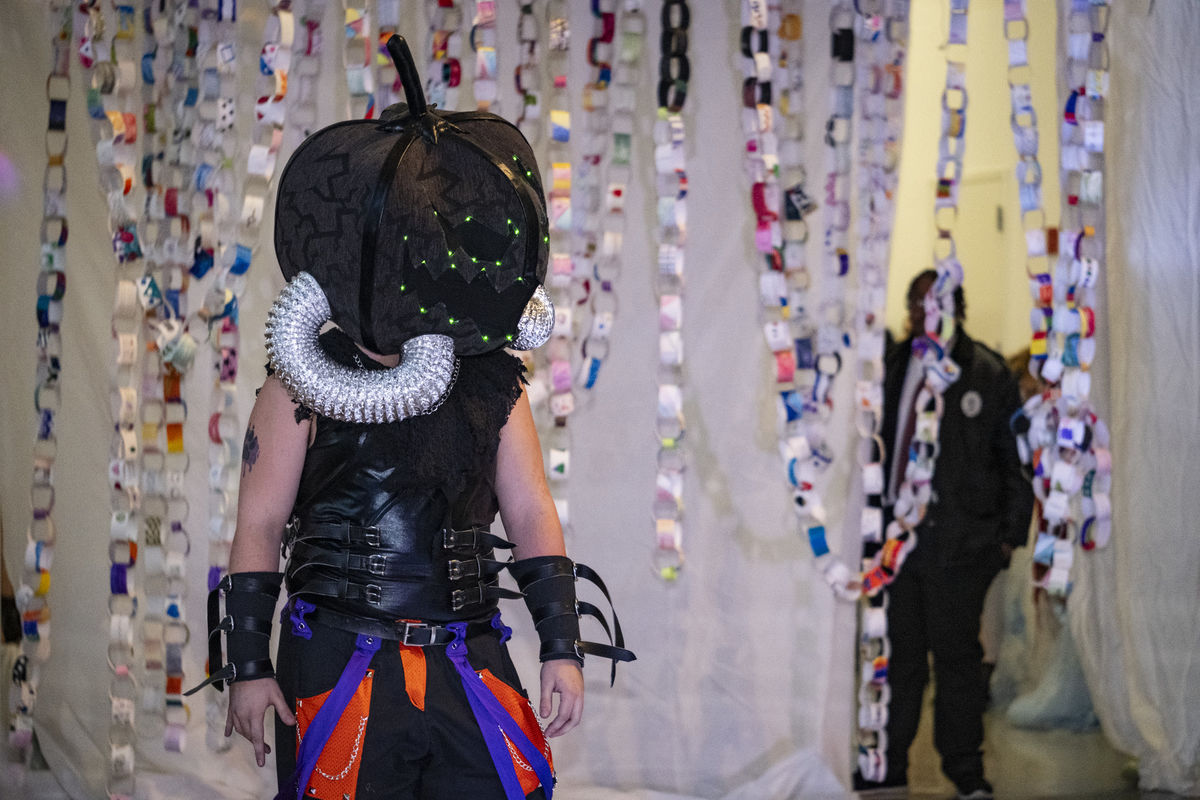
"It’s a lot of fun, but it’s a lot of work. Fibers has a nice community within it, so everybody else is kind of in the same boat, which is nice,” said fibers and material studies major Kara Anstine, Class of 2024. As a student in Cultivating a Collection, Anstine is expected to create three outfits for the show, which are part of her final grade for the course.
For many students, this opportunity is something to look forward to year after year, with many students participating in several consecutive shows during their time as students. Anstine's classmate, Bridget Phelan, a transfer student who arrived at Tyler in 2021, has now participated in the show three times. “I had just started sewing when I got to Tyler, so it just really helped me find my niche,” she said.
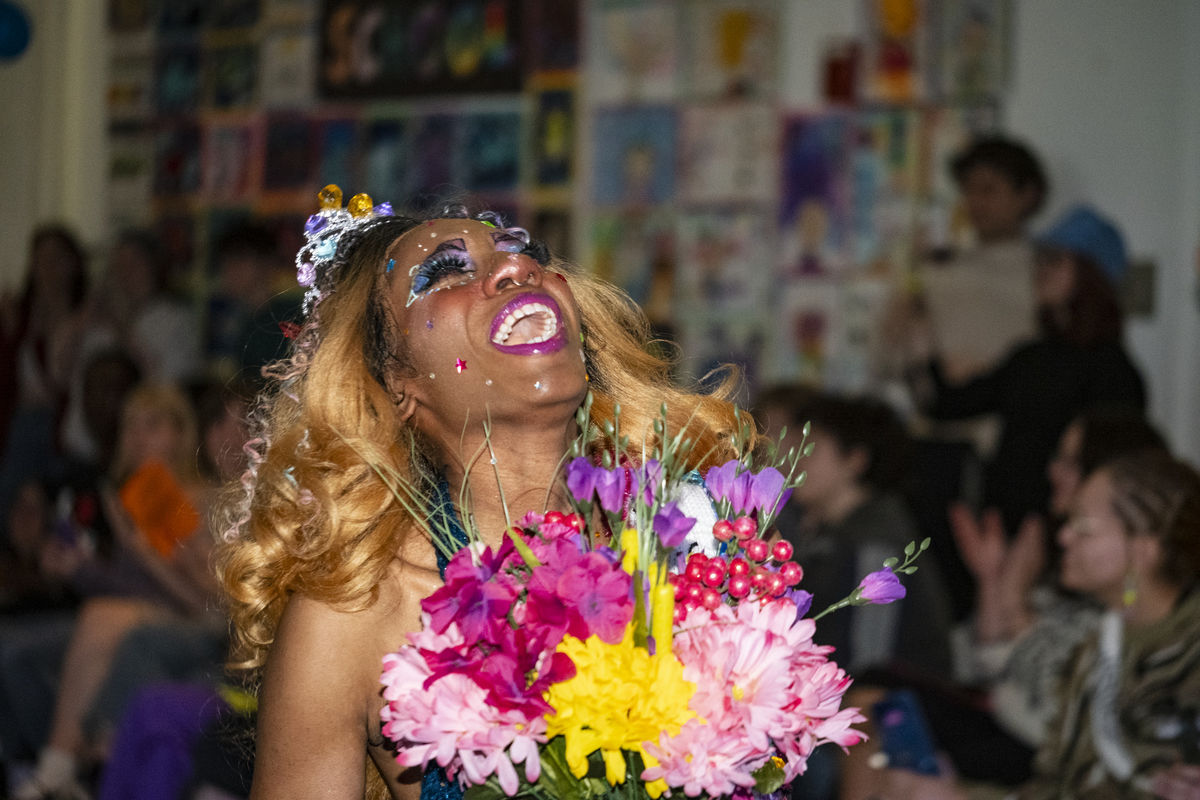
Associate Professor and Program Head of Fibers and Material Studies at Tyler Jesse Harrod explained that the benefits of the show for the students who participate are innumerable.
“Having your work seen in that context and on a stage, on a very practical level, is very useful for student portfolios. Most of the participants are undergrads, so it's important for them in thinking about graduate studies in fashion or performance,” Harrod said.
“But on a personal level, I think that it builds a sense of community. It gives them a sense of leadership. I have seen it profoundly impact the students and their commitment to their own work.”
